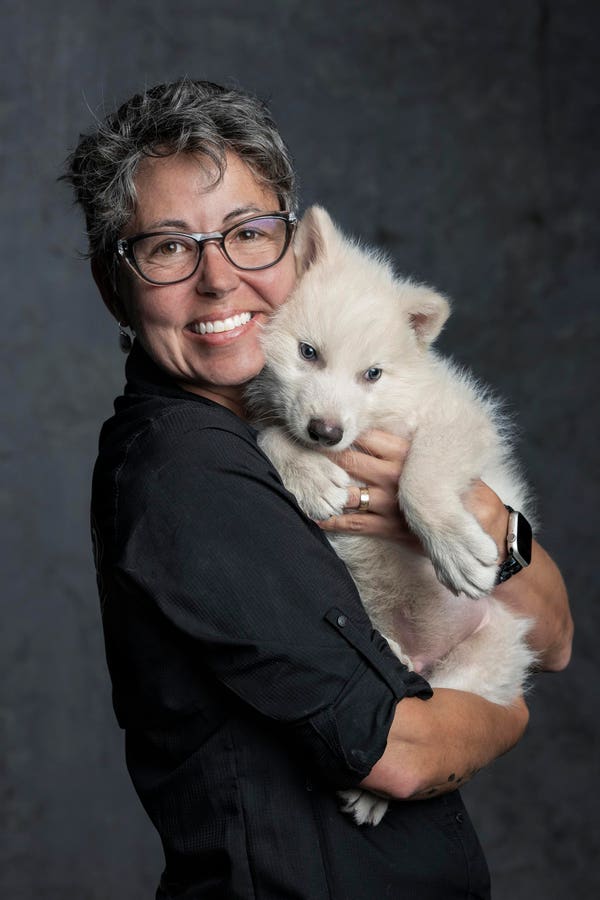© John Davidson
Women make up 43.1% of scientists in the U.S. workforce, yet they account for just 34% of the broader STEM fields, according to the National Science Foundation. Within these industries, many have faced sexual harassment or undue criticism throughout their careers, especially as their work garners public attention. The numbers—and the stories—are sobering.
Enter Dr. Beth Shapiro, a powerhouse in genomic science. She has directed her own lab at the University of California, Berkeley, authored critically acclaimed books and holds the prestigious title of HHMI Investigator. Now, as the Chief Science Officer at Colossal Biosciences, a groundbreaking company leading the charge in de-extinction, Shapiro is guiding a predominantly female team to reshape the future of conservation and genomics.
While leaving academia wasn’t an easy decision for Shapiro, she has gone on to work on some of the most exciting projects in her career. Last year, she made history when she brought the dire wolf back from extinction. On October 1, 2024, the first two dire wolf pups, Romulus and Remus, were born; on January 31, 2025, a third dire wolf named Khaleesi was welcomed into the world.
“What conservation needs is bold ideas and bold action. This breakthrough showcases that humans are capable of both. We can use biotechnologies to speed up the processes of selection and adaptation,” she said in a statement on the Colossal website. “With the successful birth of Colossal’s dire wolf, we are one step closer to a world in which these tools are among those at our disposal to help species thrive in their rapidly changing habitats.”
She has faced some level of criticism for the project, and the harshest are often less qualified males in the STEM field. However, Shapiro is more concerned about the next generation.
“We get letters from kids inspired by our work — our science, conservation efforts, and commitment to bettering the planet,” she explained in an interview. “I worry about them losing hope when they see how women in science are often treated.”
© John Davidson
This isn’t just about Shapiro; it’s about the culture of tearing down women in fields where they’re already underrepresented. The stakes are high—not just for the scientists, but for the future of innovation itself.
What Can We Do To Change The Narrative?
Look Beyond The Headlines
Not all scientists are created equal. Before buying into criticism, dig deeper into the credentials of those doing the critiquing. Are their accomplishments anywhere near the level of those they’re disparaging?
Call Out Inequality
When you see women’s work unfairly diminished, speak up. The more we normalize respect and fairness, the better the culture becomes.
Support Girls In STEM
Programs that encourage young women to pursue careers in science, technology, engineering and math. Donate, mentor or simply share resources that highlight their importance.
Challenge The Status Quo
Question why women face disproportionate scrutiny. Is it jealousy, insecurity, or outdated biases? Sometimes, the problem isn’t the science. It’s the ego of the critic.
Celebrate Women’s Wins
Share their successes, amplify their voices, and ensure their stories reach the audiences they deserve.
MORE FROM FORBES

